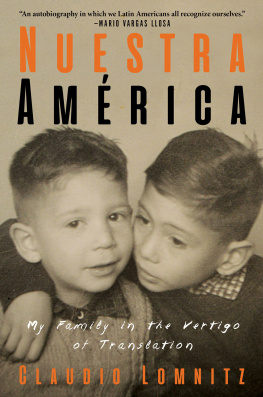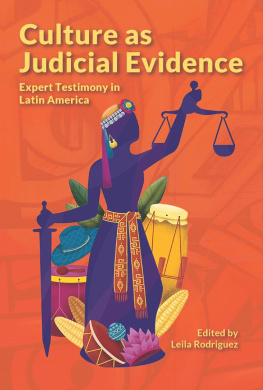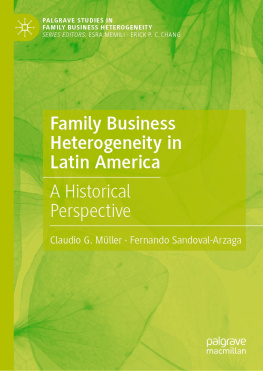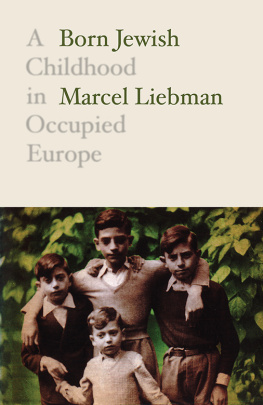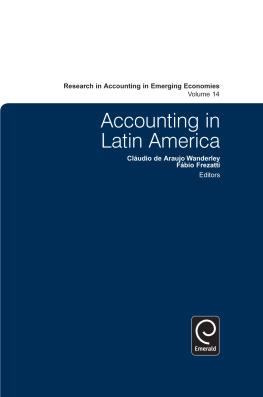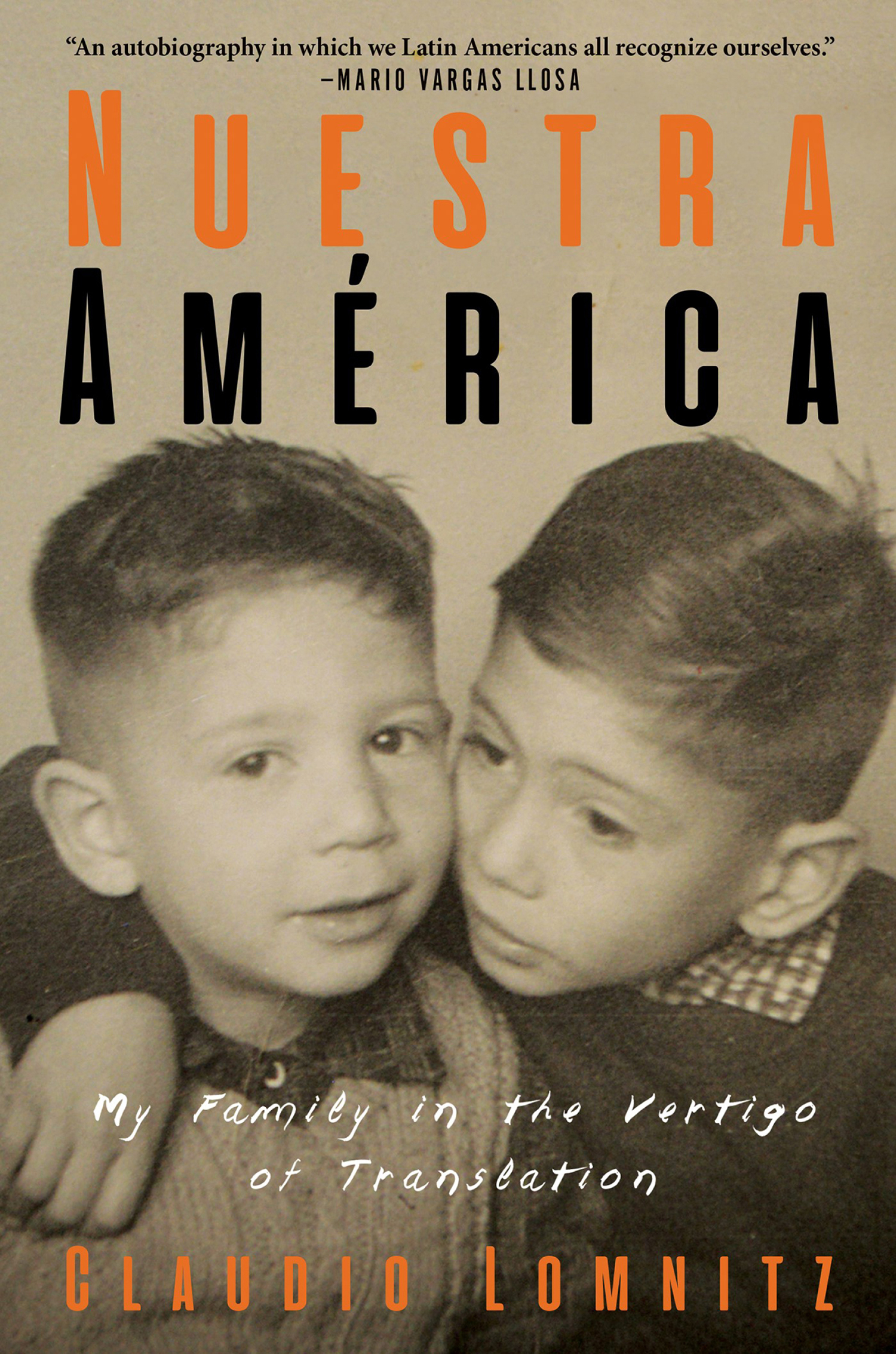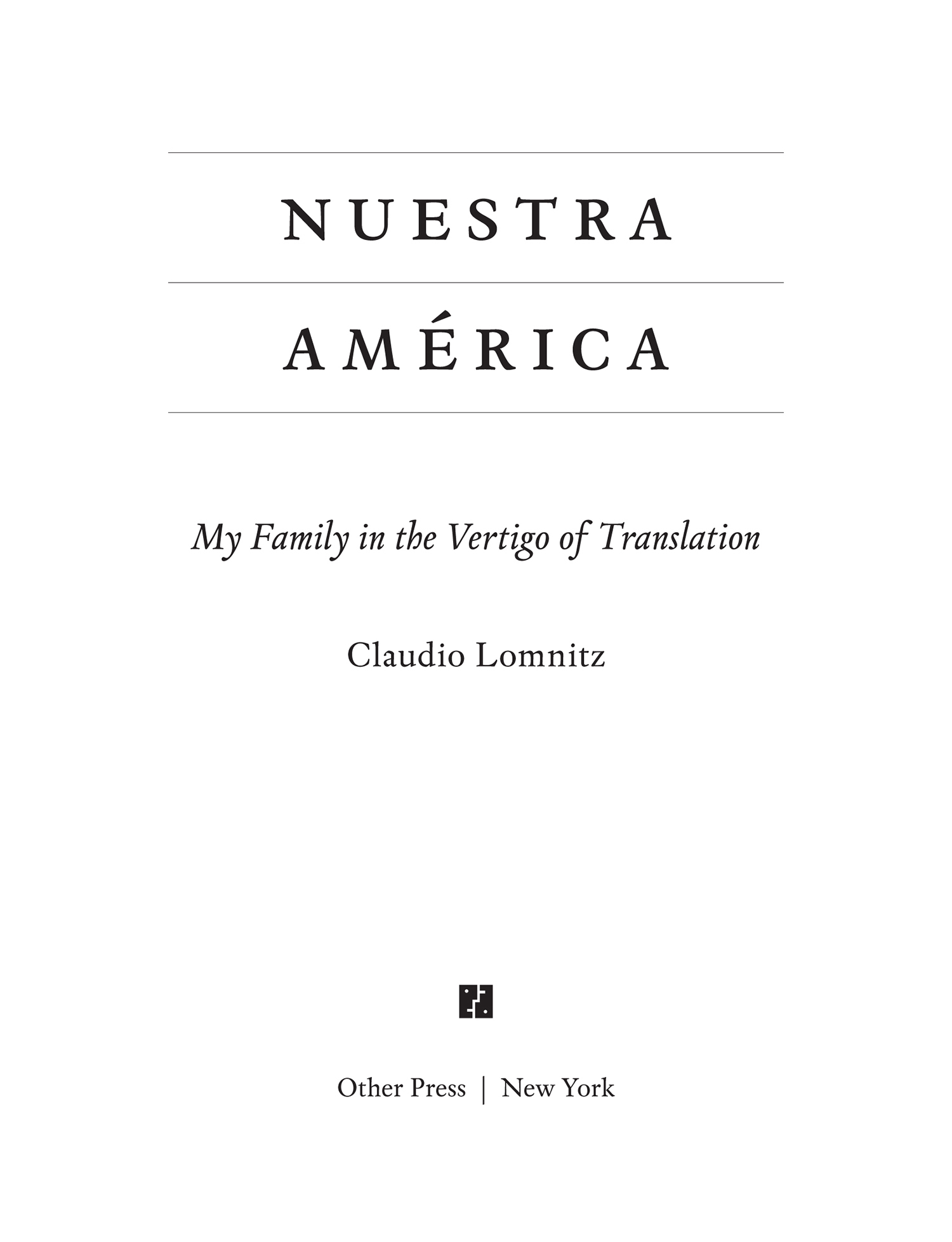Contents
Landmarks
Print Page List
ADVANCE PRAISE Nuestra Amrica
Nuestra Amrica is profound, riveting, and moving. Claudio Lomnitz reconstructs his familys history vividly, and brilliantly weaves the lives and fates of German and Romanian Jews who fled to South America into the complex web of Latin American culture, history, and politics. As he interprets how several generations of his family struggled with migration, survival, hopes, ideals, identity, community, and tradition in Chile, Peru, Colombia, Mexico, and Europe and Israel Lomnitz illuminates a poorly understood chapter in twentieth-century Jewish history and sheds light on the human condition and the quest for meaning amidst dark times.
Leon Botstein, President of Bard College
This is a brilliant and beautifully written book. By way of personal memories, archival research, and impassioned listening, Lomnitz narrates how his Jewish family coped with violence and dispersion, and reflects on the depths out of which they found strength to begin life anew. The story of his grandfathers collaboration with Maritegui in Peru uncovers an inspiring chapter on the creation of intellectual and political communities. Lomnitz brings new meaning to Nuestra Amrica as a necessary place for active new beginnings, which he has inherited.
Arcadio Daz-Quiones, Princeton University, author of La memoria rota
In times of danger, writes Claudio Lomnitz, peril is at once collective and deeply personal. His Nuestra Amrica is both an enthralling family chronicle and a stunning intellectual history of those condemned to bear witness to the scarcely suppressed barbarisms of twentieth-century nationalism in Europe and beyond; of racism, statelessness, and genocide, of evils epic and banal. In their eternal search for security, these exiles developed an acute understanding of the fascism that haunts modern statecraft everywhere. And, as intellectuals rising from the ashes, they worked to build a worldwide secular humanism, a vision of freedom for which the promise of America, both south and north, was the elusive ideal.
Jean Comaroff, Alfred North Whitehead Professor of African and African American Studies and of Anthropology, Oppenheimer Research Fellow, Harvard University
This is a beautiful, poetic book in the voice of a wise, erudite, and insightful narrator. Like a great novel, it illuminates the souls of its protagonists and the times in which they lived. Like a great ethnography, it is world-making. I have read many memoirs, and this one is among the most captivating. If the gods still communicated directly with humankind through doves or angels or oracles, they would say, read Nuestra Amrica.
Thomas W. Laqueur, Professor Emeritus, UC Berkeley, and author of Work of the Dead: A Cultural History of Mortal Remains
Here, the author and the book make each other. By producing archives previously unbeknownst to him, Claudio Lomnitz enters into conversation with his own book to investigate himself and his family while building a theory of history: if this book puts the family as the center of that theory of history it is not just because Claudio is an anthropologist; it is not just because he was invaded by unbearable nostalgia; it is not just because he has suffered the loss of members of his family; it is not just because. It is also because the family as a random dynamic of people linked by consanguinity and affinity that is, not as an institution, because institutions are elective, optional structures is an impossible actor of historical events; its members are unpredictable, they wander around intimacy and distance, they cannot judge why despite being such perfect strangers they are so much alike.
Jess R. Velasco, Professor of Medieval and Early Modern Studies at Yale University and author of Dead Voice: Law, Philosophy, and Fiction in the Iberian Middle Ages
This extraordinary book illuminates the agency of people in dark times, through transatlantic, multilingual, and pluricultural stories. Nuestra Amrica interweaves the archive of the history of the Jewish diaspora with that of Lomnitzs own family. Against the tragic background of global twentieth-century events, we learn the workings of individual lives and how these individuals deal with decision-making at the most critical moments of social and political experience.
Graciela Montaldo, Columbia University, co-editor of The Argentina Reader
What do our family histories reveal and conceal? As he explores the migrations of his relatives between Central Europe, South America, and Israel, Claudio Lomnitz provides a poignant, finely wrought meditation on displacement, loss, and linguistic genealogies. Nuestra Amrica invites us to think hard about what we can recognize, what we can know, and what we can protect when it comes to those we call kin.
Stphane Gerson, Professor of French Studies, French, and History, New York University
Nuestra Amrica is a remarkable book part family history, part intellectual autobiography, part eyewitness account of World War II, the Holocaust, the kibbutzim, part reflections on exile. With narrative mastery, Claudio Lomnitz leads us on an unsuspected journey from the outskirts of Bessarabia to Latin America and the United States, with pit stops in Israel and the Berkeley campus. A must-read for those intrigued by the vagaries of twentieth-century history, with its diasporas, migrations, settlements, and resettlements.
Rubn Gallo, Princeton University, author of Freuds Mexico and Mexican Modernity
In Nuestra Amrica Claudio Lomnitz reveals his strengths as a historian, as well as his disarming vulnerabilities in a process of self-discovery, while unearthing a family saga worthy of a great Latin American novel. Lomnitzs memoir is not just about his own family. It honors the lives of so many other spirited men and women who started new lives, learned new languages, and embraced new cultures while trying to keep a connection with their Jewish heritage, even as they kept quiet about the most traumatic events of their personal and collective experiences to protect their children and grandchildren from their silent despair.
Efran Kristal, Distinguished Professor of Comparative Literature, UCLA
ALSO BY CLAUDIO LOMNITZ
Exits from the Labyrinth:
Culture and Ideology in the Mexican National Space
Deep Mexico, Silent Mexico:
An Anthropology of Nationalism
Death and the Idea of Mexico
The Return of Comrade Ricardo Flores Magn
Copyright Claudio Lomnitz, 2021
An earlier version of this book was published in Spanish in 2018
by Fondo de Cultura Econmica, Mexico City, Mexico.
Lyrics on from Forever Young by Bob Dylan.
Copyright 1973 by Rams Horn Music; renewed 2001 by Rams Horn Music.
All rights reserved. International copyright secured. Reprinted by permission.
Production editor: Yvonne E. Crdenas
Text designer: Julie Fry
All rights reserved. No part of this publication may be reproduced or transmitted in any form or by any means, electronic or mechanical, including photocopying, recording, or by any information storage and retrieval system, without written permission from Other Press LLC, except in the case of brief quotations in reviews for inclusion in a magazine, newspaper, or broadcast. For information write to Other Press LLC, 267 Fifth Avenue, 6th Floor, New York, NY 10016. Or visit our Web site: www.otherpress.com

